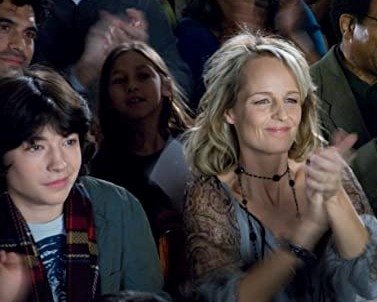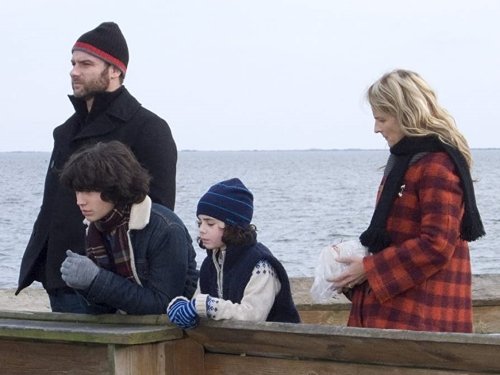Helen Hunt Filmography Part 18: Every Day
Another movie pretty much trashed by focusing on the least interesting character.
For some reason Every Day (2010) takes a middle-aged white man dealing with some minor inconveniences in the most asshole-ish way possible and equates it with humor.
After teasing the possibility that Ned (Liev Schrieber) is a modern man who takes equal responsibility for his children and home management, the movie throws that possibility in the garbage.
When his wife, Jeannie (Helen Hunt) moves her ill and emotionally toxic father into their home, Ned is initially supportive, but quickly begins to feel sorry for himself and resents the time that Jeannie is spending on managing her father’s care.
He also is not the most talented and appreciated person at his job writing for an extremely graphic and violent TV show. Never mind that he is doing what he loves—writing for TV—he’s just not the star writer in the room; therefor, his work life is a drag.
He also has trouble dealing with his oldest son, Jonah (Ezra Miller), who is gay. It’s hard to tell if he’s just uncomfortable with having a gay son, which even in 2010 seems like an atypical stance for a artistic New Yorker. Or if he is in fact genuinely worried about his teenage son going out with college students.
So obviously when faced with this cumulative burden of having a gay son, not being the favorite employee, and having a wife who is caring for her horrible father, he has an affair with his coworker. It’s both completely shitty and narratively lazy.
Helen Hunt and Ezra Miller make this movie somewhat watchable.
Jeannie vacillates between regret over bringing her aggressively negative and toxic father to live with them and guilt over not liking her father who has hurt her deeply over the course of her life. Not to mention that she is putting her career on hold—again—to be a care giver.
The tension between her duty and her resentment is interesting. The balance she tries to find between caring for her father and being present for her family is interesting. Her need for Ned to support her even though she has nothing to give is interesting.
Ned feeling sorry for himself and being unsupportive is NOT interesting, but that’s what the movie decided to center.
It would have been interesting to see a relationship go through the challenges of middle-age and aging parents and teenagers in a healthy way.
It would be interesting to see that marriage is rarely equal all the time. It is a seesaw of giving and taking. When one partner is down or overwhelmed the other has to pick up the slack—around the house, with the kids, in emotional support.
It would be interesting to see a father struggle to connect with his son who is transition from child to a man.
It would be interesting to see a father choose love and connection and vulnerable concern with his son’s sexual safety over confrontation and control.
It would be interesting to see Jonah feel safe enough with Ned to come to him after his traumatic encounter at a club. It would be interesting to see Ned respond with tenderness to his son’s hurt.
Instead they went with Ned doing drugs and having pool sex. Not interesting.




